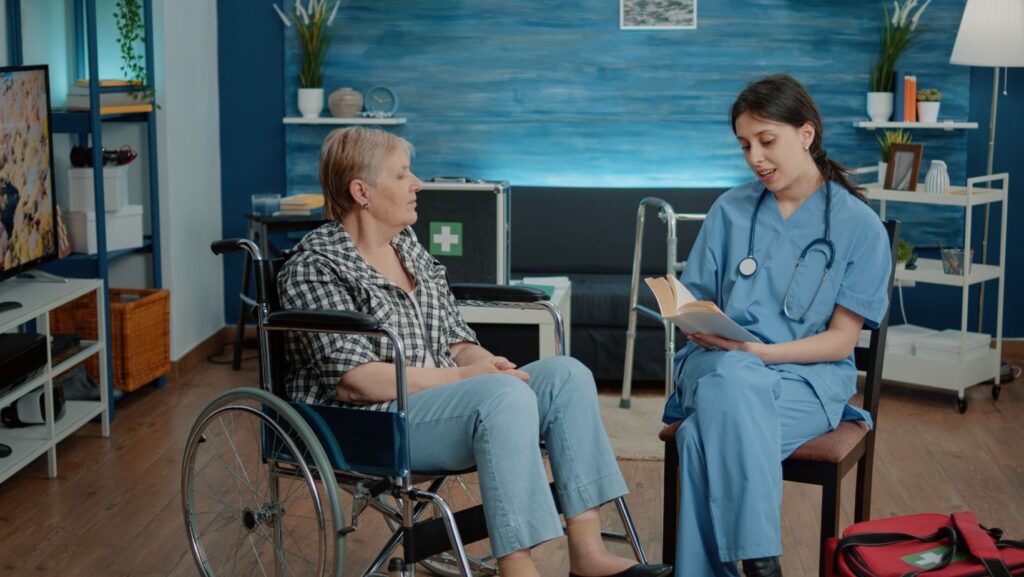As a personal care attendant, I’ve witnessed firsthand the profound impact compassionate care can have on individuals in need. Whether assisting with daily tasks, providing emotional support, or simply being a comforting presence, the role of a personal care attendant is both rewarding and essential. In this article, I’ll delve into the responsibilities, qualifications, and qualities that make a great personal care attendant.
Being a personal care attendant isn’t just about completing tasks; it’s about forming genuine connections and making a positive difference in someone’s life. From helping with personal hygiene to offering companionship, the work of a personal care attendant plays a crucial role in enhancing the quality of life for those requiring assistance. Join me as I explore the invaluable contributions and challenges faced by individuals in this vital caregiving profession.
Personal Care Attendant
Being a personal care attendant involves providing crucial support and assistance to individuals who need help with daily activities due to various reasons such as age, disability, or illness. It’s about offering compassionate care and ensuring the well-being of those in need.
In my experience, a personal care attendant’s role is multifaceted, involving tasks that range from helping with grooming and mobility to offering companionship and emotional support. It’s essential to approach each day with empathy and patience, recognizing the unique needs and preferences of the individuals under my care.

Responsibilities of a Personal Care Attendant
Being a personal care attendant involves various essential responsibilities to ensure the well-being and support of individuals in need. Here are the key duties that I undertake in my role:
- Providing personal hygiene assistance such as bathing, grooming, and dressing.
- Assisting with mobility needs, including walking, using a wheelchair, or transferring between locations.
- Supporting individuals in medication reminders and maintaining their medication schedule.
- Assisting with nutritional needs, including meal preparation, feeding, and dietary requirements.
- Monitoring and recording individual vital signs to track their health status.
- Offering emotional support and companionship to enhance their overall well-being.
- Assisting with light housekeeping tasks to maintain a clean and organized environment.
- Ensuring safety measures are in place to prevent accidents and injuries.
In my role as a personal care attendant, I take pride in fulfilling these responsibilities with dedication and compassion, recognizing the importance of each task in improving the quality of life for those under my care.

Qualifications and Training for Personal Care Attendants
Transitioning from discussing the responsibilities and rewarding nature of being a personal care attendant, I’ll now delve into the essential qualifications and training required to excel in this profession.
- Education: To become a personal care attendant, having a high school diploma or equivalent is typically necessary. Specialized training programs or certifications in caregiving, such as Certified Nursing Assistant (CNA) or Home Health Aide (HHA) courses, can also be beneficial.
- Skills: Key skills for personal care attendants include excellent communication abilities, empathy, patience, reliability, and the capacity to provide physical assistance with activities of daily living. Additionally, being organized, observant, and adaptable are crucial traits for effectively meeting the needs of care recipients.
- Training: Formal training programs cover topics like personal care procedures, health and safety protocols, infection control, documentation practices, and communication skills. Hands-on training in a healthcare setting under the supervision of experienced professionals is often part of the training process.
- Certifications: Obtaining certifications such as CPR (Cardiopulmonary Resuscitation) and Basic Life Support (BLS) can enhance a personal care attendant’s qualifications and provide essential life-saving skills in emergency situations.
- Continuing Education: Staying current with industry updates and pursuing continuing education opportunities is vital for personal care attendants to enhance their knowledge, skills, and competencies in caregiving practices.
By meeting these qualifications and undergoing comprehensive training, personal care attendants can deliver high-quality care, foster positive relationships with care recipients, and make a meaningful difference in the lives of those they assist.
